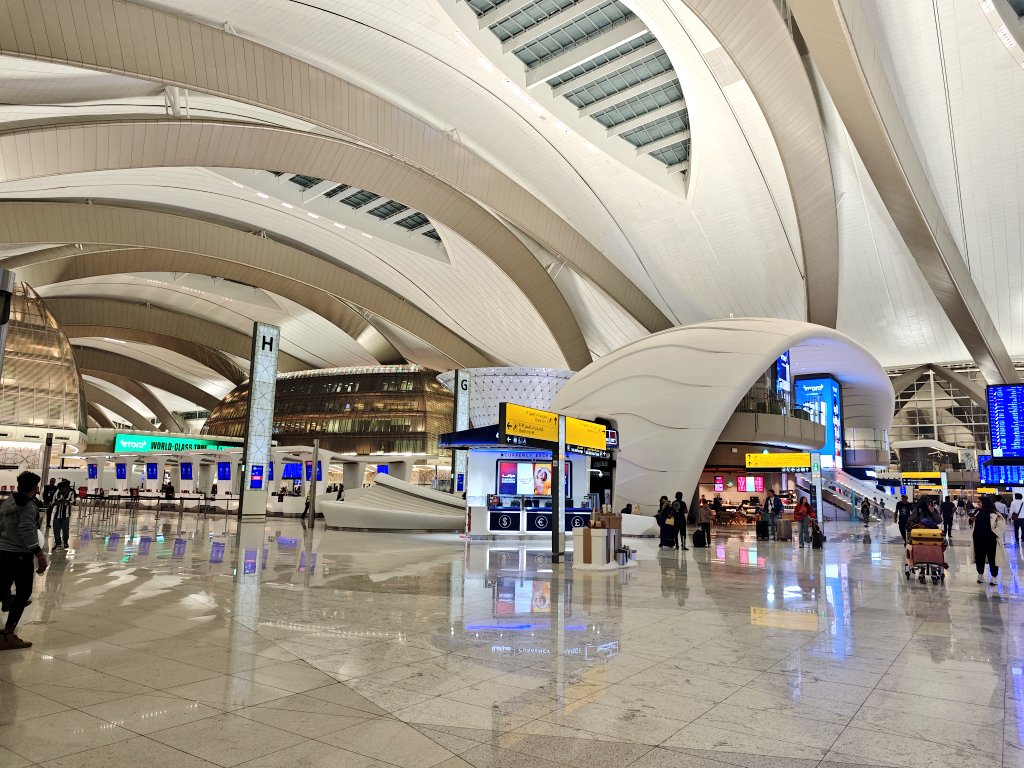
Zayed International Airport (AUH), Abu Dhabi’s premier aviation gateway, has proudly attained the Airports Council International (ACI) World Level 2 Accessibility Enhancement Accreditation, underscoring its accelerated commitment to fostering an inclusive and universally accessible travel environment. This achievement builds on the airport’s earlier Level 1 accreditation in 2024 and represents a significant leap in integrating accessibility as a core operational and cultural principle throughout the airport’s services and infrastructure.

The Level 2 accreditation acknowledges AUH’s successful implementation of a comprehensive accessibility strategy, backed by a robust governance framework and intensive training programs for its workforce. This strategy ensures that services across the airport cater to the diverse needs of passengers with disabilities, enhancing their journey with thoughtful, universal design principles. From physical infrastructure to digital platforms, the airport now embeds accessibility as a fundamental pillar of its operation.
Aligned closely with landmark national guidelines including the UAE’s National Policy for Empowering People of Determination, Federal Law No. 29 on the Rights of People with Special Needs, and the UAE Digital Accessibility Policy, AUH exceeds minimum regulatory requirements. Its efforts span inclusive design, extensive disability awareness training for employees and partners, and proactive stakeholder engagement, ensuring that all staff are equipped to support travelers with varying abilities comprehensively.

Elena Sorlini, Managing Director and CEO of Abu Dhabi Airports, expressed pride in the airport’s pioneering role: “From the outset, we envisioned Zayed International Airport not just as a transit hub, but as a world-class gateway embracing every passenger. Achieving Level 2 Accessibility Accreditation, building on last year’s Level 1 recognition, reaffirms that vision.
This success reflects the dedication of our entire team to making accessibility integral to our identity and a testament to the UAE’s inclusive values of dignity and respect for all.”
Operational accessibility enhancements are complemented by advanced digital accessibility features. The AUH website adheres to WCAG 2.1 Level AA standards and incorporates the Recite Me assistive technology platform. This suite of tools supports passengers with visual impairments, dyslexia, learning difficulties, and language barriers by offering functionalities such as text-to-speech, reading aids, customizable fonts, and website content translation into over 100 languages.
The digital platform improvements enhance usability, engagement, and confidence for a wide range of users, reinforcing AUH’s reputation as a forward-thinking, socially responsible, and passenger-centered airport.
AUH also focuses on inclusivity beyond visible disabilities by actively supporting programs such as the Hidden Disabilities Sunflower Lanyard Initiative, which helps identify and assist passengers with hidden disabilities who may need additional care. The airport has developed specialized areas like the new Sensory Space, designed in partnership with the Zayed Higher Organization for People of Determination and the SEDRA Foundation.
This calming and supportive environment offers ambient lighting, comfortable seating, and sensory-friendly resources tailored for both children and adults with sensory sensitivities, further solidifying AUH as a leader in passenger well-being and accessibility.

Additional services at the airport include complimentary baby strollers for families, dedicated check-in counters for People of Determination, and a newly opened Service Animal and Pet Relief Area, providing a comfortable space for service animals and pets to rest. These amenities are supported by ongoing staff training programs that enhance sensitivity and professionalism when assisting travelers with diverse requirements.
Frank McCrorie, Chief Operations Officer at Abu Dhabi Airports, highlighted the holistic approach: “From the Sensory Space to accessibility accreditation, our initiatives underscore a genuine commitment to making every passenger feel welcomed and supported. We prioritize a seamless, dignified travel experience that embraces inclusiveness at every touchpoint.”
Similarly, Dania Mikdad Aladhami, Accessibility Specialist at the Zayed Higher Organization for People of Determination, emphasized the importance of well-trained frontline staff in shaping positive travel experiences for people of determination, praising AUH’s dedication and enthusiasm in advancing accessibility standards.
Since its inception, Zayed International Airport has been designed with accessibility as a core priority, continually innovating through staff development, technological integration, and facility enhancements. This comprehensive dedication ensures that AUH not only serves as a strategic transport hub but also sets global benchmarks in delivering universal accessibility and exceptional passenger care.
This landmark achievement in accessibility accreditation strengthens Abu Dhabi Airports’ leadership in inclusive aviation practices and reinforces the nation’s commitment to creating a travel environment welcoming to everyone, regardless of ability.


.jpg)
.jpg)
.jpg)

.jpg)


.jpg)


.jpg)
.jpg)

.jpg)



.jpg)
.jpg)


.jpg)

.jpg)




.jpg)





.jpg)
.jpg)


.jpg)
 (1).jpg)
.jpg)
.jpg)

.jpg)

.jpg)
.jpg)
 (1).jpg)





